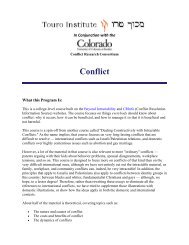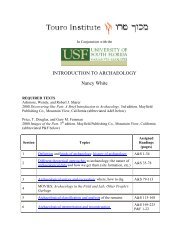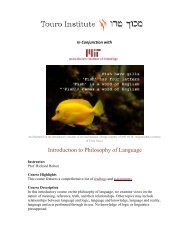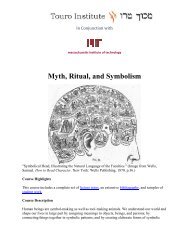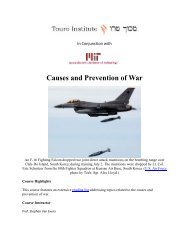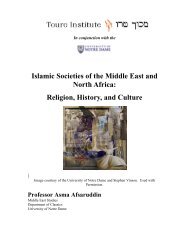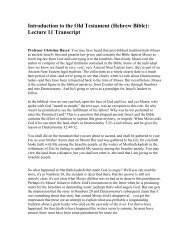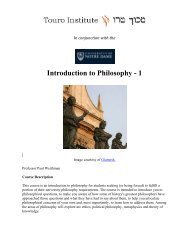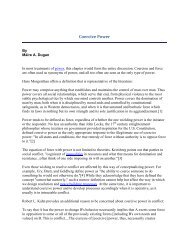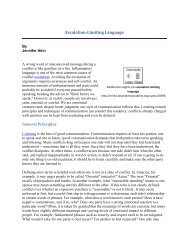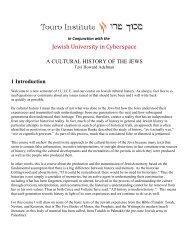In Conjunction with Cultural Anthropology - Touro Institute
In Conjunction with Cultural Anthropology - Touro Institute
In Conjunction with Cultural Anthropology - Touro Institute
You also want an ePaper? Increase the reach of your titles
YUMPU automatically turns print PDFs into web optimized ePapers that Google loves.
deviate from those guidelines.<br />
d. Cultures encourage emotional reactions to similar situations but cannot control emotional<br />
intensity.<br />
8. How are the terms morality and piety related in this text?<br />
a. Piety is a form of morality.<br />
b. Morality is a form of piety.<br />
c. Morality controls relationships between people, while piety controls relationships <strong>with</strong> the<br />
supernatural.<br />
d. Both are kinds of beliefs.<br />
9. Etiquette is best defined as _______________.<br />
a. rules that define good and bad treatment of other people.<br />
b. rules about religious obligations.<br />
c. rules that govern manners and define what are considered courteous or civil ways of<br />
communicating.<br />
d. any kind of value.<br />
10. Which of the following is NOT a cultural universal?<br />
a. youthful vitality and health are regarded as sexually attractive.<br />
b.parents are expected to care for their young.<br />
c.play and play-fighting function to establish status hierarchies.<br />
d.a preference among men for women <strong>with</strong> high social status as mates.<br />
Matching Exercise - Chapter 2: Culture<br />
1. society<br />
2. culture<br />
3. subculture<br />
4. ethnic group<br />
5. ideology<br />
6. belief<br />
7. emotion<br />
8. attitude<br />
9. values<br />
10. morality<br />
11. etiquette<br />
12. piety<br />
13. aesthetics<br />
14. real culture<br />
15. ideal culture<br />
16. acculturation<br />
17. assimilation<br />
1 8. culture shock<br />
19. ethnocentrism<br />
20. cultural relativism<br />
21. super-organic<br />
a. the idea that culture is a system that is governed by rules that are not explainable in<br />
terms of human biology but that must be studied as a phenomenon in its own right to<br />
identify the lawful characteristics that govern cultural processes<br />
b. feelings about what should be considered good, bad, moral, or immoral; the ideals that





